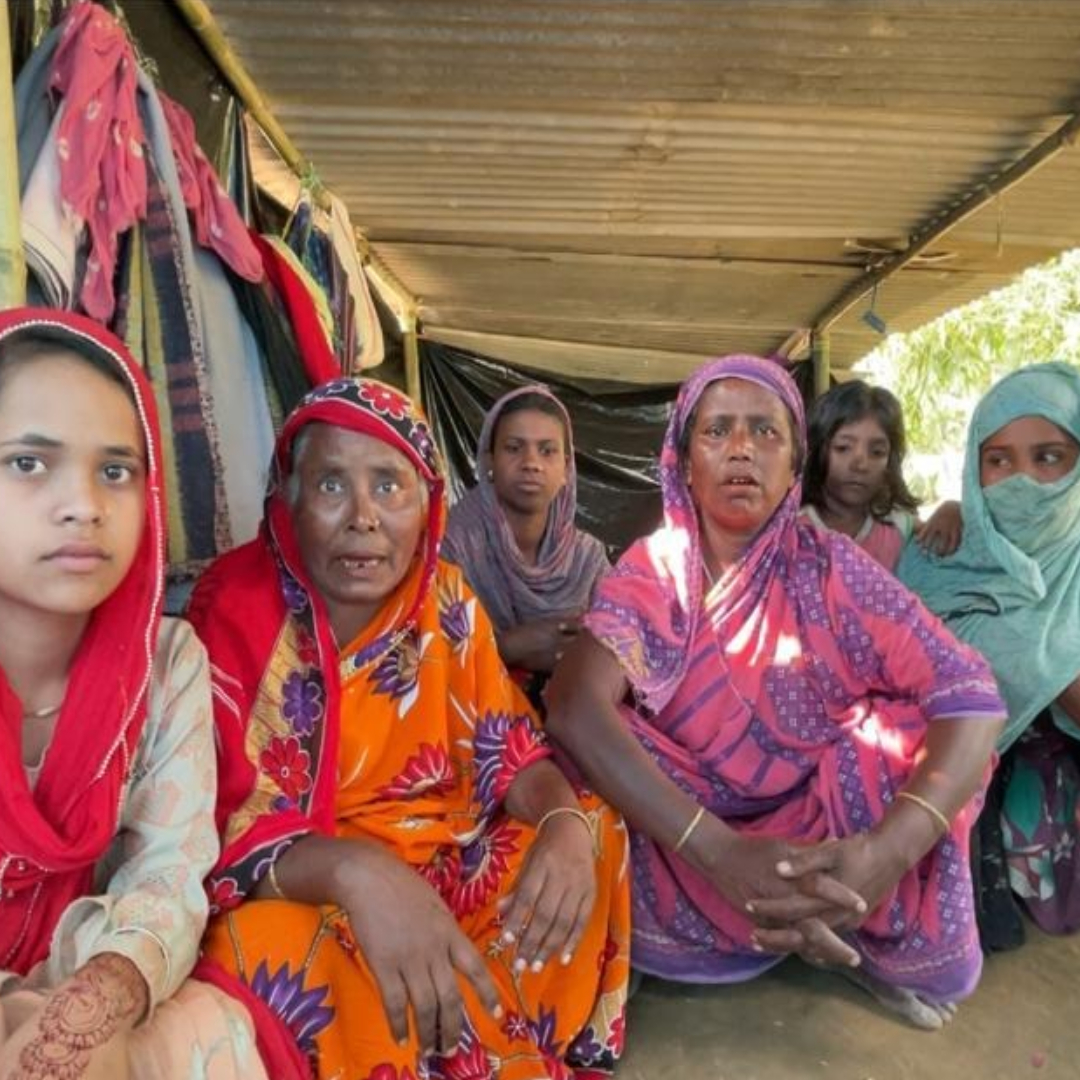
Image Credit: Save the Children
Women In Flood Affected Areas Of Assam Struggle To Find Clean Water, Unable To Defecate In Open
Writer: Save the Children
Save the Children is India’s leading independent child rights’ NGO, which works in 18 states of the country. Beginning its journey in 2008 in India, and registered as ‘Bal Raksha Bharat’, we have changed the lives of more than 11 million (1.1 crore) children.
Assam, 7 Jun 2022 12:44 PM GMT
Creatives : Ankita Singh |
A literature lover who likes delving deeper into a wide range of societal issues and expresses her opinions about the same. Keeps looking for best-read recommendations while enjoying her coffee and tea.
Guest Author : Save the Children
Save the Children is India’s leading independent child rights’ NGO, which works in 18 states of the country. Beginning its journey in 2008 in India, and registered as ‘Bal Raksha Bharat’, we have changed the lives of more than 11 million (1.1 crore) children.
Life for women was always tough, but disasters and displacement brings to the forefront the grim state of basic health and hygiene infrastructure.
Twenty-five-year-old Shahida (name changed) is starving. She, like many other women in the community living in 1 number Pakali village of Kampur in the Nagaon district of Middle Assam, are avoiding eating rice, their staple, for fear of having to ease themselves next morning. Men and women, and especially women and girls are finding it difficult to get dry land to go and ease themselves.
If they find the land, clean water is unavailable. And if they must defecate, they prefer to use the flood water to wash themselves. Sanitation is unthinkable at this point, and defecating in the open is embarrassing and puts them at risk. As the flood waters start to recede in many parts of the state, thousands of hectares of land in Nagaon still remain submerged.
The women of this village which looks more like a relief camp use toilets once in 3 days and that too if they find a private space. They have no option but to request one of the better off homes to allow them access to one. However, they may not be successful each time.
As a side effect of inaccessibility to toilets, and long periods of holding back their stool, they are losing the urge/sensation, resulting in constipation and fecal incontinence.
"I feel so much discomfort that my back hurts even more than before. To add to it, I have to walk at least 1.5-2 kilometers to fetch water – whether it is for household use or to wash ourselves. We prefer to save the water for consumption rather than use it for washing," says Shahida. The sentiment is echoed by the women squatting around her.
"It is worse for girls and women on MC (as periods are known among these women). We don't even get to wash the clothes we use during this time. We keep it all day long and have to throw it away. We cannot afford one-time-use pads," added another woman.
Life for women was always tough, but disasters and displacement brings to the forefront the grim state of basic health and hygiene infrastructure.
Rice is our staple, all three meals include rice. But now due to the lack of toilets or even open dry spaces, we have reduced our intake to only eating one meal a day. We feel hungry but what to do? - said one of the women.
How Is Save the Children Intervening?
The recent floods in Assam have left hundreds of thousands of people and children in severe distress. Apart from loss of property, household items and the stock food items, this has affected the livelihood of people severely as a large part of farmland has been damaged. Many families with children are taking shelter in relief camps and roadsides in unhygienic condition without access to safe water and sanitation.
Schools and Anganwadi centres are damaged and non-functional in large numbers making continuity of education an almost impossible option. Children, especially the girls, remain particularly vulnerable to abuse and exploitation in such terrible situations. Adolescent girls and women are facing tremendous challenges related to menstrual hygiene. Save the Children has already mounted a response reaching out to the families in relief camps with immediate support.
They have plans to set-up children-friendly spaces for education continuity, required care and protection as well as psycho-social support to children. Also, they will provide temporary shelter materials, education kits, family hygiene kits and food items to children and families. In the longer run, our intervention will include support for livelihood restoration of families in distress.
 All section
All section















